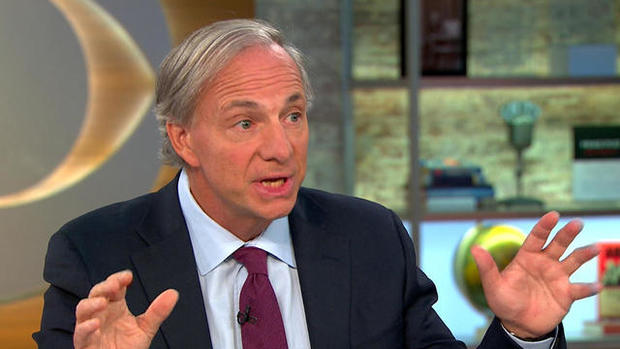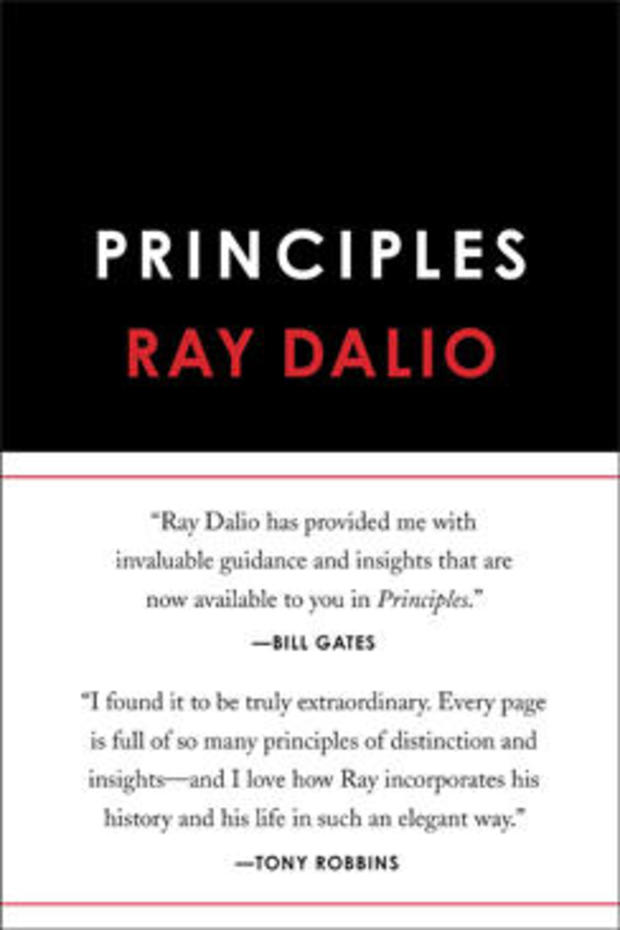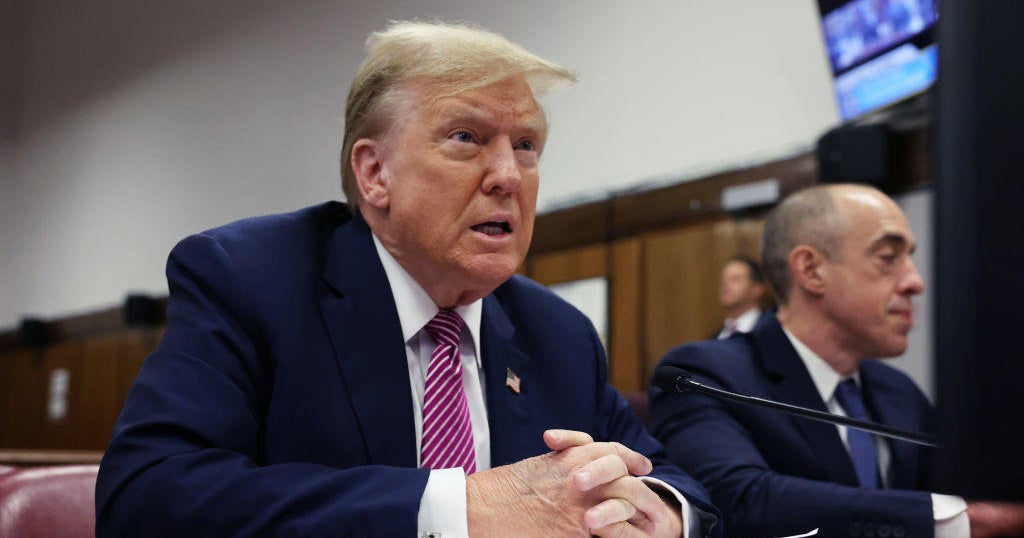Investment manager Ray Dalio on keys to success
Ray Dalio is the founder of the world's largest and most successful hedge fund, Bridgewater. He created it in 1975 in his two-bedroom apartment. Today Bridgewater has about 1,500 employees and manages $162 billion. Now he's out with a new book "Principles: Life and Work" (published by Simon & Schuster, a division of CBS). It describes more than 200 rules he credits for Bridgewater's success. The book is an expanded version of his original "Principles," released online in 2011.
One of the points made in his book is that truth and transparency are essential to a good work environment – even if people's feelings might be hurt.
"We can't handle the truth," he said (quoting the film "A Few Good Men"). "We have to start with what reality is, right? We have to start with what truth is."
Dalio said there are three key factors to success: "Those three things are, that you have to lay your honest thoughts on the table. Can you do that, lay your honest thoughts on the table? Second, you have to have thoughtful disagreement between people who disagree; They have to know how to work those things through so that they all learn. And then third, to be able to go beyond those disagreements in a democratic way.
"It's all about making better decisions," he said.
But there are two barriers to making good decisions: ego and close-mindedness. Being "radically open-minded," he says, has been key to his success.
"Because nobody themselves actually sees the picture the same way. There are big-picture thinkers, there are detailed thinkers. We need them all. They all see things very differently. And when you can bring that into focus so you can see it in three dimensions or multi-dimensions, and then know how to take advantage of all that and go beyond it, it's very powerful."
When asked about the economy and the Trump administration's handling of it, Dalio said that, on average, the economy is in the middle of a business cycle, "which means that it's not too hot and it's not too cold, and the Fed shouldn't tighten monetary policies. On the other hand it has a lot of debt and obligations -- pension obligations, health care obligations. When demographics play a role, that's going to gradually squeeze things."
But Dalio said that there are actually TWO different economies: "There's the economy for the top 40%, lets say, and there's the economy for the bottom. When we think about the Trump presidency, we're dealing with the conflict or the dilemmas, the divergences between those two economies, and the populism that is then [brought] forward his election. We have to deal with those two economies – that's the biggest issue of our time, I think."
It is decisions at the legislative and regulatory levels that have created that divergence, he said. "The population that is the bottom 60% has not had economic growth. They're the majority. They have not had economic growth. They have a rising death rate from opioids and heroin and suicides. They have their own particular challenges. And this economy is now in one way or another about dealing with those two different economies."
He also noted that increased productivity and technology are replacing jobs, helping to create two different economies.
"This is the most important economic issue of our time," he said. "That is why we have populism. With that populism produces a question of how conflict is dealt with."
With a U.S. wealth gap that is the largest it has been since the 1920s, Dalio likened today's low-interest rate policies to the Depression era.
"The period right now is very similar to 1937," he said. "We had a debt problem. Interest rates went to zero, we had a wealth gap, a large wealth gap, and we also had a federal reserve that began to tighten monetary policy."
- "Principles: Life and Work" by Ray Dalio is available via Amazon





